WHAT
WE DO ?
We offer you customized services for areas as various as complex.
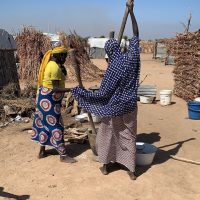
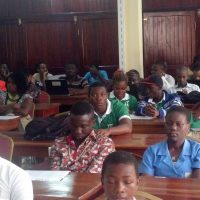
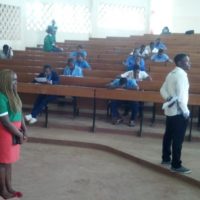
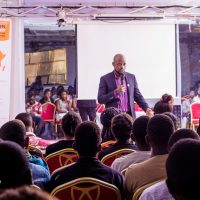
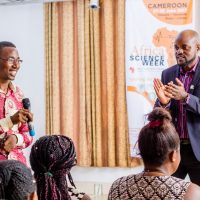



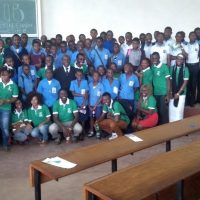

Data Collec-tion and Analysis
The 21st Century has brought the world to what some have dubbed the fourth industrial revolution. This fast paced change in the way we think and do things has been driven largely by the advanced methods of gathering and crunching data. These advancements present Africa with enormous possibilities for development in sectors such as Agriculture, Health, Transport, Education and what have you. That notwithstanding, the existing potential and possible progress has been stalled by the quality of available data or lack thereof. Math Entrepreneur accords data collection and analysis the importance it deserves. We know that data presents the reality and stimulates innovation that helps improve current conditions.
Our data program consists of:
Sensitization of organizations and companies in the collection and analysis of data to stimulate innovation in their activities.
Training students on the use of software such as R, Python, SPSS and Excel.
Raising students awareness of the professions of: big data, data mining, statistics
Training of organizations and local businesses in the process of data collection and analysis.
Carry out data collection and analysis for organization who wan
Help organization to put in place their proper data collection process that meet their objectives and help them in decision making.


Feasibility studies
According to a survey conducted by the agency Invest in Cameroon from 2010 to 2016, the failure rate of business projects in Cameroon stands at 72%. This situation is not unique to Cameroon, but to several other African countries and to some extent the world. One of the main causes of the failures of these projects is the lack of strategic planning. Many people start an activity without doing a project analysis. The preliminary analysis of a project still called a feasibility study consists in evaluating the risks, the points of vulnerability, the constraints (schedule, costs and quality standards) and the four P?s (the plan, the processes, the people and the power). Feasibility studies make it possible to see if the project is viable, and inform the undertaker about the weak points of the project in order to make adequate decisions. Math Entrepreneur is aware that we can not talk about community and sustainable development if we do not have SMEs that have a good vision of their business and are stable. Thus through our rich and experienced team, we bring solutions SMEs by providing decision support tools, risk and strategic management support, to enhance the business? chance to thrive and contribute to the development of the community.
Operations Management (Operations Research)
The sustainability of a business’s competitive advantage is a profound challenge to management teams the world over. This advantage is in fact a direct consequence of how the business manages its value chain over time. The absence of optimization techniques through the value chain is the root cause of failure in most SMEs. That said, mathematics and mathematicians in the west have over the years studied and employed tools from operations research to enhance business management in western markets. Math Entrepreneur aims to bring these techniques to the African market by becoming a partner of choice for capacity building for local businesses. Given that SMEs do not have the means to invest in operational research, we suggest that they make up for it by making use of our diverse knowledge.


Strategic Planning
A strategic plan is to a business what a building plan is to a construction worker. Without it, achieving reasonable and cost effective success is nothing but fantasy. Like planning construction, the rudimentary operations of a business must be carefully crafted and prepared well ahead of time. Indeed, optimal performance and value creation in business is subject to the quality of the business strategies put in place by management. Building up a strategy that sustains business success over the years is not an easy task, and most often requires expertise and data that small businesses seldom have. At Math Entrepreneur, we make our duty to supply SMEs with the necessary skill and knowhow needed to craft strategy that gives them an edge over their competition.The strategic planning work of Math Entrepreneur has the particularity that, it is based more on tools such as: decision support systems, data analysis, risk management and strategic management. It takes into consideration the vision, the mission and the values, makes long-term projections, analyses all the parameters related to the project, defines the objectives, and in the end sets up an action plan.
Forecasting
African cities have several problems with, water, electricity, road infrastructure, and much more. These problems are largely because these cities are seldom prepared for development, and the sudden hikes in population or industrial need take the city authorities by surprise. Recognizing that we are in a constantly changing world, and for African businesses to survive through these changing times, they must take into account these different mutations and make projections. Math Entrepreneur makes predictions based on the data, considering the different factors on which the project depends, by doing simulations, to finally come out with a model that guides this change.


impact studies
This is a technical study that aims to assess the consequences of all kinds, including environmental project to try to limit, mitigate or compensate for negative impacts. In many countries, environmental impact assessments (EIAs) have gradually become mandatory prior to the completion of developments or works that, because of their size or their impact on the natural environment, could damage the latter. Impact studies are still often incomplete or poorly done, especially due to; lack of time and financial resources for the experts needed for the fine environmental assessments; lack of time and / or technical expertise for wildlife and ecological inventories; poor consideration of indirect and secondary impacts, etc. Sometimes the impact study is well done, but the compensatory and conservatory measures it proposes are simply not implemented. Large projects must be the subject of environmental impact studies, but they are sometimes implemented in successive instalments over time to allow them to escape impact studies. Math Entrepreneur in its principle of community and sustainable development provides industry and infrastructure, systematic and effective tools to minimize the risk of pollution related to their projects. These mathematical tools include operational research and optimization, data collection and analysis, modeling and analysis of environmental dynamics, and many other disciplines that will allow each project to validate its research. impact before being launched.
education and training
According to UNESCO, 1 3 of children aged between 12 and 14 are out of school in sub-Saharan Africa. For this continent to develop, not only must youth be educated, but it must also be interested in science in order to contribute to the continent’s infrastructural development. For this reason, Math Entrepreneur makes education and training a priority. The educational and training program of ME is divided in two major parts.
1. Training, research and development This phase consists of bringing together students from science streams in general, and mathematics in particular. At the university level, we provide training in Latex, Python, Matlab, R, excel and other computer tools needed for success in industry. Partnering with these young people, we equally carry out research and provide solutions to the problems that undermine our community by using STEM in general and Maths in particular. We further organize training and awareness workshops for exposing our work and highlighting the importance of mathematics and the opportunities therein. Organizing mathematical Olympiads to enhance excellence is also a key feature of this program.
2. Education for the disadvantaged community. Recognizing that there is a great lack of teachers in Africa, especially for basic and secondary education in rural areas, we support education programs in these communities, with emphases on scientific tracks in general and mathematics in particular. This program consists of volunteering in these different communities. Support the education of women and vulnerable people by encouraging involvement in science and mathematics. For those who are already in the workforce, married girls, a program to teach them basic maths and reading so that they can carry out an economic activity and contribute to the economic growth of their community.

Strategic Planning
Image Source: WOCinTechChat, Icon Finder